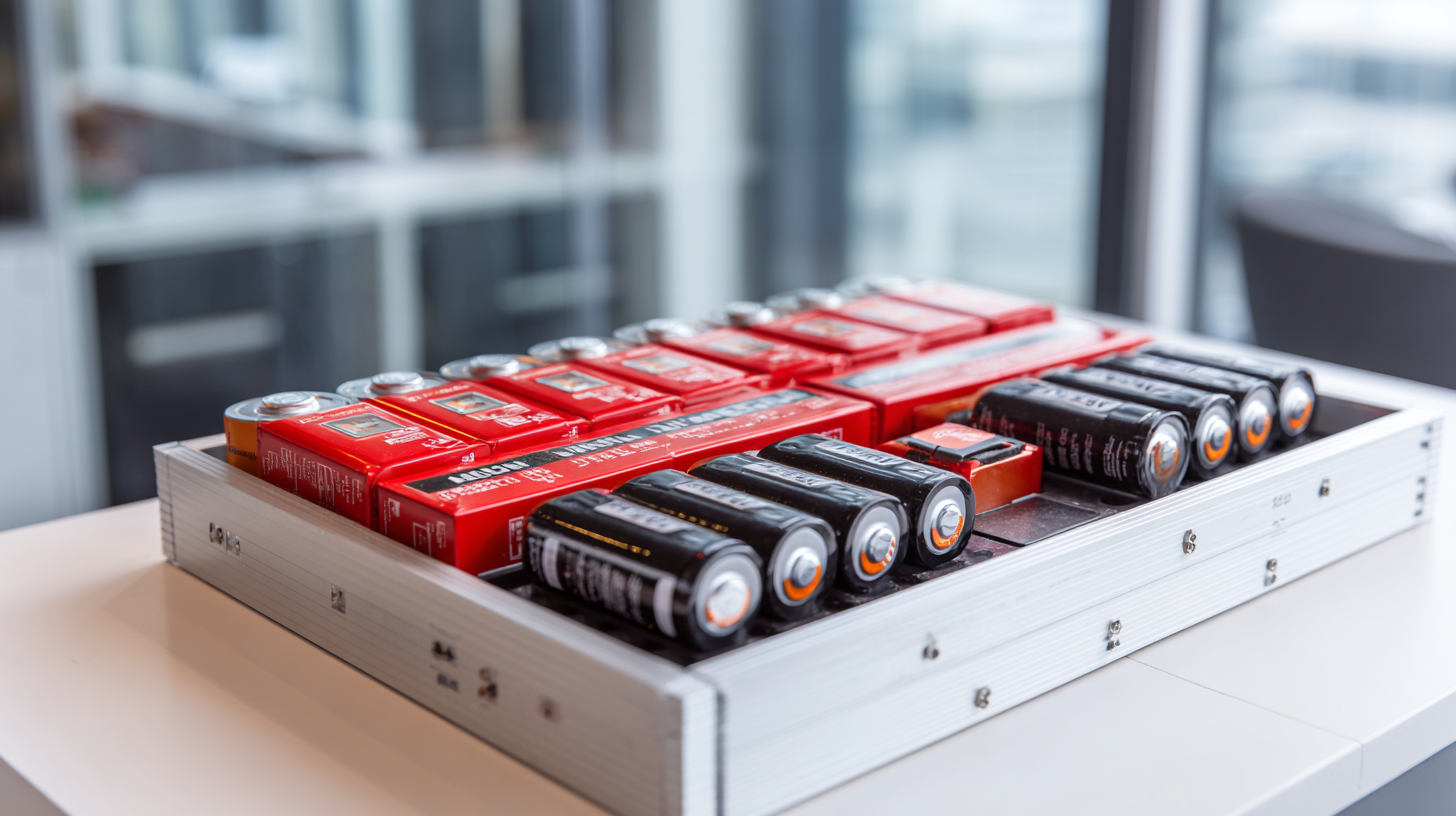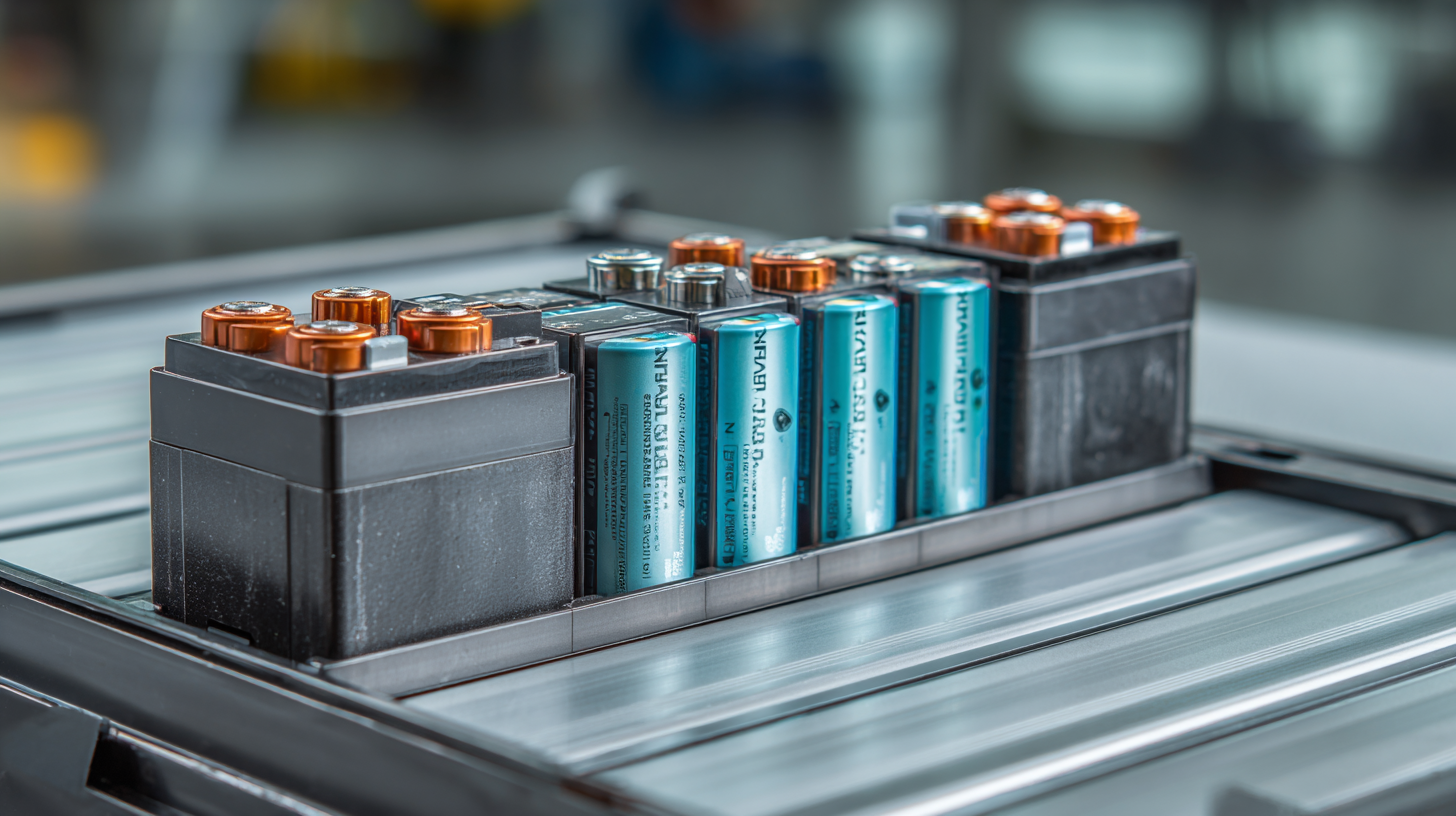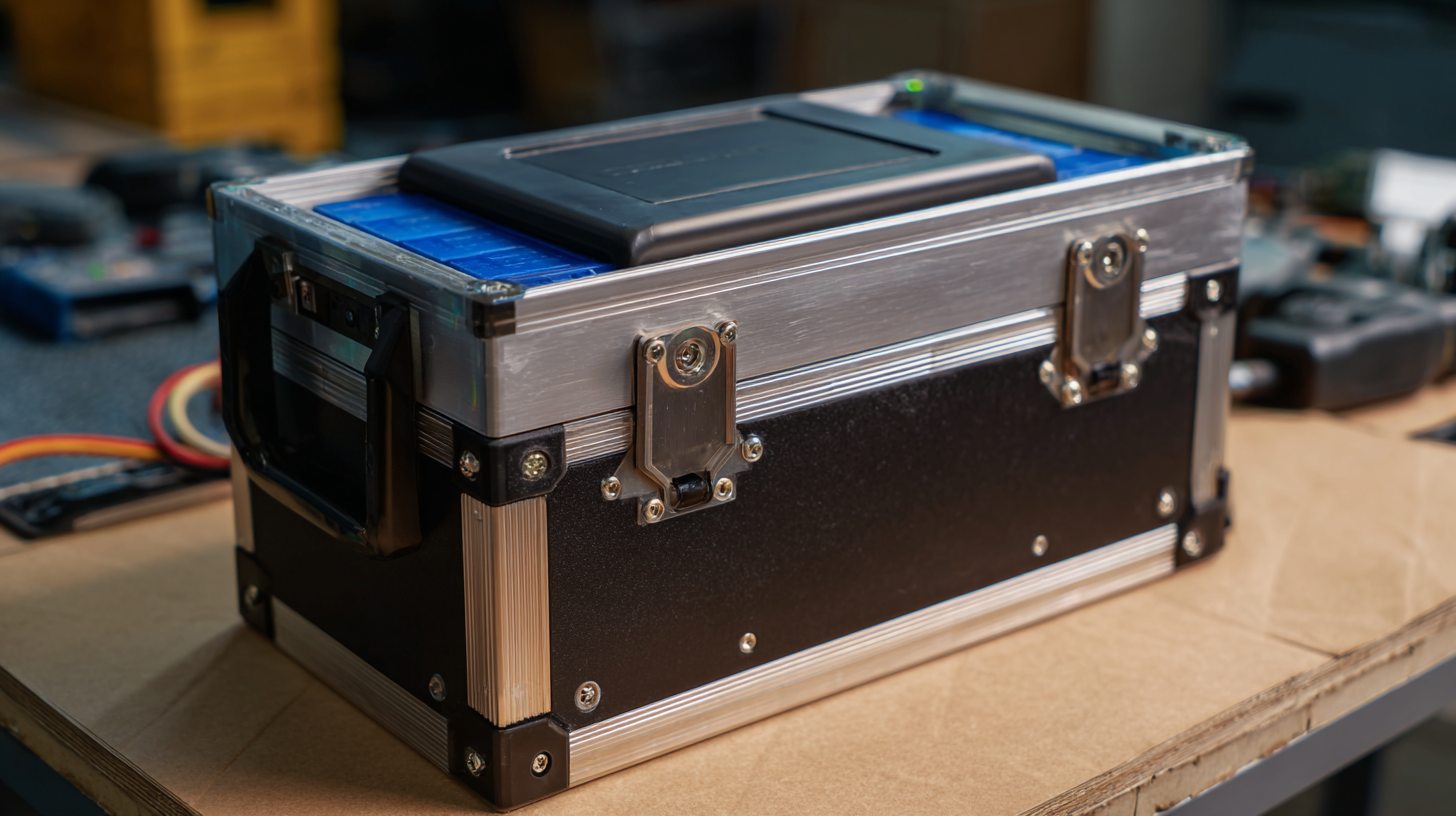 As the global demand for sustainable energy solutions escalates, the focus on innovative energy storage technologies has intensified, with the
48v Lifepo4 Battery emerging as a frontrunner in this evolution. According to a report by
ResearchAndMarkets, the lithium iron phosphate (LiFePO4) battery market is projected to grow at a
CAGR of 15.3% over the next five years, driven by increasing applications in renewable energy
systems and electric vehicles. The 48v Lifepo4 Battery, known for its thermal stability, safety,
and longevity, plays a crucial role in this transition, providing an efficient alternative to traditional lead-acid batteries. With advancements in
battery management systems and further declines in production costs, the future of energy storage looks promising, making the
48v Lifepo4 Battery a pivotal technology in achieving energy efficiency and sustainability in
various sectors.
As the global demand for sustainable energy solutions escalates, the focus on innovative energy storage technologies has intensified, with the
48v Lifepo4 Battery emerging as a frontrunner in this evolution. According to a report by
ResearchAndMarkets, the lithium iron phosphate (LiFePO4) battery market is projected to grow at a
CAGR of 15.3% over the next five years, driven by increasing applications in renewable energy
systems and electric vehicles. The 48v Lifepo4 Battery, known for its thermal stability, safety,
and longevity, plays a crucial role in this transition, providing an efficient alternative to traditional lead-acid batteries. With advancements in
battery management systems and further declines in production costs, the future of energy storage looks promising, making the
48v Lifepo4 Battery a pivotal technology in achieving energy efficiency and sustainability in
various sectors.
The emergence of 48V LiFePO4 battery technology is poised to revolutionize the energy storage landscape. This advanced battery system offers numerous advantages, particularly in efficiency, safety, and longevity compared to traditional lithium-ion batteries. As we delve into its benefits, it’s essential to recognize the global shift toward sustainable energy solutions, with the solar generator market expected to reach a value of $591 million in 2024 and grow significantly to $1.01829 billion by 2032. This surge is a clear indicator of the increasing demand for reliable and efficient energy storage systems.
One of the primary advantages of 48V LiFePO4 batteries is their enhanced safety profile. Unlike other lithium battery technologies, LiFePO4 batteries have a higher thermal stability, significantly reducing the risk of overheating or fires. Additionally, these batteries support faster charging and discharging rates, making them an ideal choice for applications in electric vehicles, RVs, and residential energy systems. The rising popularity of RV tourism, fueled by a shift in consumer travel preferences towards safety and reduced contact, is accelerating the demand for efficient battery systems that can facilitate an eco-friendly travel experience. The adoption of 48V LiFePO4 technology marks a pivotal step in meeting both consumer needs and sustainability goals in the energy storage sector.
| Parameter | Value | Description |
|---|---|---|
| Nominal Voltage | 48V | Standard voltage for LiFePO4 battery packs. |
| Cycle Life | 2000-5000 cycles | Number of complete charge/discharge cycles before capacity drops significantly. |
| Energy Density | 90-160 Wh/kg | Amount of energy stored per kilogram of battery weight. |
| Charging Time | 2-4 hours | Typical time to fully charge a battery pack. |
| Operating Temperature | -20°C to +60°C | Safe temperature range for operation. |
| Discharge Rate | 1C - 3C | Rate at which the battery can safely discharge its energy. |
| Cost per kWh | $100 - $300 | Estimated cost effective for energy storage solutions. |
| Safety Features | Thermal stabilization, non-combustible | Inherent safety characteristics of LiFePO4 technology. |
The growing demand for efficient and sustainable energy solutions has led to the rise of 48V LiFePO4 batteries. These batteries, known for their high energy density and longevity, are transforming the energy storage landscape. One of the key benefits of 48V LiFePO4 technology is its ability to support larger energy systems while maintaining safety and performance. Unlike traditional lead-acid batteries, LiFePO4 batteries can charge faster and have a longer cycle life, making them an ideal choice for residential and commercial energy storage applications.
Tip: When selecting a 48V LiFePO4 battery for your needs, ensure that you consider not only the capacity but also the discharge rate and compatibility with your existing energy systems. This will maximize efficiency and performance.
Another notable advantage of 48V LiFePO4 batteries is their environmental friendliness. They are made from non-toxic materials and have a significantly lower carbon footprint compared to other battery technologies. This aspect not only appeals to eco-conscious consumers but also aligns with global efforts to reduce greenhouse gas emissions.
Tip: To further enhance the sustainability of your energy storage solution, consider integrating renewable energy sources, such as solar panels, with your 48V LiFePO4 battery system. This combination can optimize energy usage while sustaining a greener lifestyle.
The emergence of 48V LiFePO4 battery technology is reshaping the landscape of energy storage, particularly in electric vehicles (EVs). Compared to traditional battery technologies, such as lead-acid and nickel-based batteries, the advantages of 48V LiFePO4 batteries are striking. According to the latest research from the International Energy Agency, LiFePO4 batteries offer a cycle life of up to 3000 cycles, significantly exceeding the 500 to 1000 cycles typical of lead-acid batteries. This durability translates to lower lifetime costs and fewer replacements, a critical factor for consumers and manufacturers alike.
Furthermore, the energy density of 48V LiFePO4 batteries plays a pivotal role in their adoption. Reports indicate that LiFePO4 batteries can achieve energy densities around 120 Wh/kg, which is a noteworthy improvement over traditional lead-acid batteries, which typically offer about 30-50 Wh/kg. In addition to their performance metrics, LiFePO4 batteries have a much lower environmental impact since they are less toxic and have a reduced self-discharge rate of around 3-5% per month. This combination of longevity, efficiency, and safety positions 48V LiFePO4 technology as a dominant force in the future of energy storage solutions.
The role of 48V LiFePO4 battery technology in renewable energy systems is steadily gaining traction, positioning itself as a pivotal element in the evolution of energy storage solutions. These batteries not only offer enhanced safety and thermal stability compared to their lithium-ion counterparts but also provide a more efficient energy output, crucial for solar applications. Recent industry analyses indicate that the global market for lithium iron phosphate batteries is expected to expand significantly, driven by the demand for affordable and reliable energy storage systems, particularly in residential settings.

In the context of renewable energy, the integration of 48V LiFePO4 batteries is essential for optimizing solar PV systems. As utility rates shift, the potential for grid defection becomes increasingly viable, making on-site energy storage a financially attractive option. The notable decrease in lithium-ion battery pack prices to a record low of $139/kWh reflects the growing accessibility of energy solutions that support this shift towards increased self-sufficiency. The advancement in 48V systems not only facilitates improved capacity and lifespan but also opens up new avenues for efficient energy use in homes and businesses alike, reinforcing their critical role in sustainable energy practices.
The advancements in 48V LiFePO4 battery technology bring a promising future for energy storage, but they are not without their challenges. Innovations in this sector aim to enhance battery efficiency, lifespan, and safety. Reports indicate that the global demand for 48V systems in electric vehicles and renewable energy systems is projected to reach a staggering $10 billion by 2025, reflecting a CAGR of over 15% from 2020. However, issues related to thermal management and battery degradation still pose significant hurdles to widespread adoption.
To overcome these challenges, research and development are focusing on enhancing cell design and employing advanced materials, which could improve energy density and charging speeds. A recent study by a leading battery manufacturer has shown that optimized LiFePO4 cells can increase energy density by up to 20%, which is crucial for applications demanding lightweight and compact power sources. Furthermore, integrating smart battery management systems can ensure safer operation while prolonging battery life.
Tip: To maximize the lifespan of your LiFePO4 batteries, maintain optimal charging conditions and avoid deep discharges. Regularly monitor the temperature and health of your battery system to prevent issues related to thermal runaway. Additionally, consider pairing your battery system with a robust energy management system to optimize performance and longevity.



